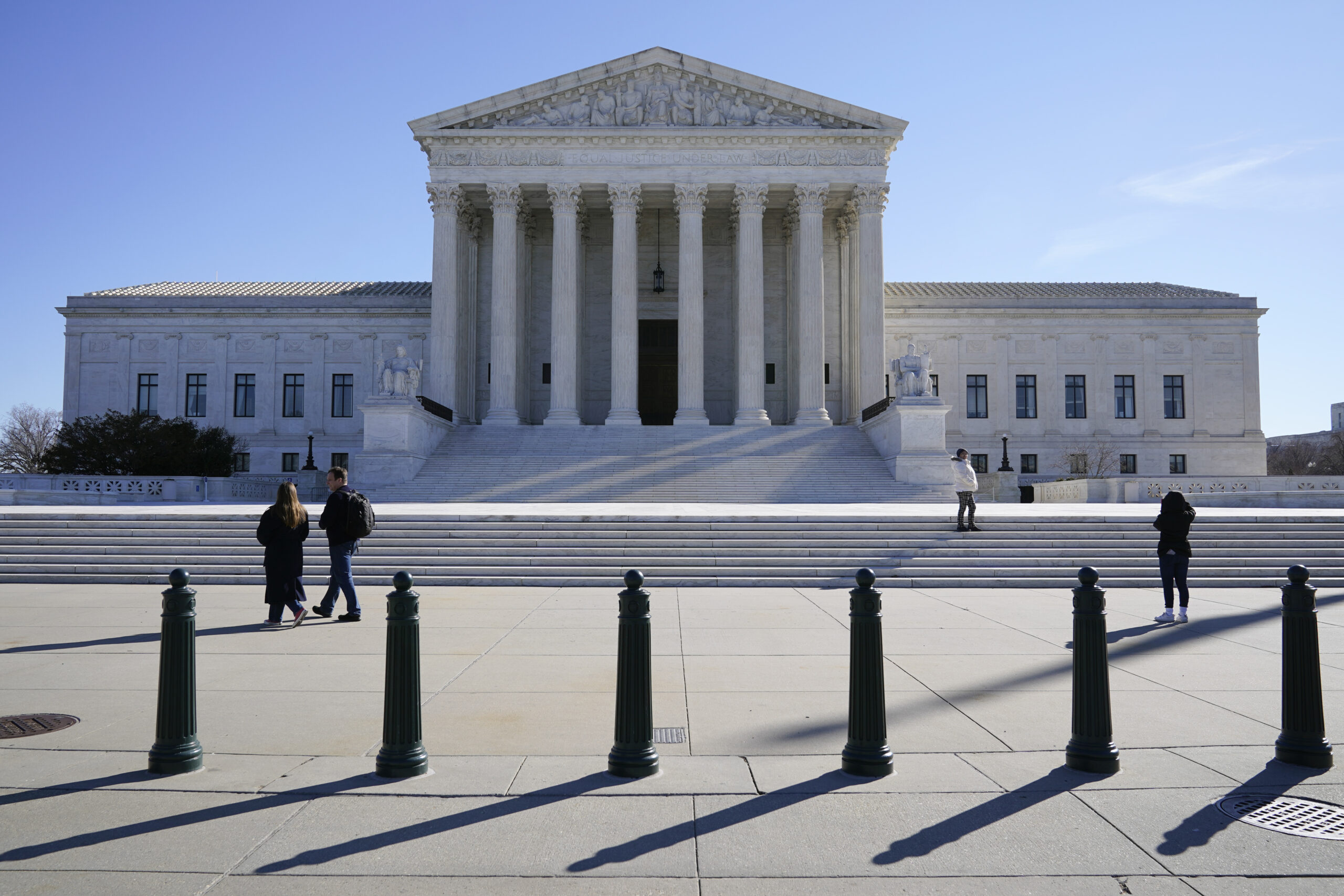(RNS) — On May 3, a Rastafarian serving a five-month sentence in in a Louisiana state prison filed a Supreme Court petition to seek damages after his jailers cut his dreadlocks, a hairstyle he said he wore for religious reasons.
Damon Landor, who is backed in the case by a broad range of faith organizations, argues the prison infringed on his religious rights.
At stake is not only Landor’s right to grow his hair, but a provision of the Religious Land Use and Institutionalized Persons Act, which governs such regulations, regarding the payment of damages in cases of violation. Currently, prisons officials aren’t bound to pay damages under the RLUIPA
“Without damages, this law provides no real protection, and members of minority faiths in particular are exposed to serious abuse,” said Zack Tripp, an attorney for Weil, Gotshal & Manges, the firm representing Landor.

Damon Landor with long hair prior to his incarceration. (Photo courtesy of Weil, Gotshal & Manges)
Landor’s legal team hopes to set a precedent for all prisoners seeking damages under the law, known as RLUIPA, and spark discussions on the need for prisons to protect minority-faith prisoners more actively. According to a U.S. Commission on Civil Rights report titled “Enforcing Religious Freedom in Prison,” non-Christian prisoners are more likely than others to file complaints related to religious liberty.
In 2020, Landor was admitted to the Raymond Laborde Correctional Center in Avoyelles Parish, Louisiana, for drug possession and was informed that his head would be shorn to comply with the Louisiana Department of Corrections’ grooming policy.
At the time, Landor couldn’t present documentation issued by a judge proving he wore his locks for religious reasons. But according to his legal complaint, he presented a copy of a 2017 decision prohibiting the state’s Department of Corrections from cutting the locks of Rastafarian prisoners.
That decision, by the 5th U.S. Circuit Court of Appeals, found in favor of another Rastafarian incarcerated in Louisiana, Christopher Ware, after he sued the state’s Department of Corrections over its grooming policy.
Landor was nonetheless shackled to a table as prison officials cut his waist-length locks, which he been growing for about 20 years. In imitation of Samson, a figure in the Bible’s Book of Judges, Landor never cut his hair, drank wine or went near corpses or graves.
Landor said his hairstyle played a central role in his Rastafarian beliefs, and the incident has affected him emotionally.
He filed a lawsuit seeking damages in December 2021. A district court dismissed his case in September 2022. He then filed an appeal that was rejected by a Fifth Circuit panel in September 2023.
“We emphatically condemn the treatment that Landor endured. Still, we remain bound by our prior decision in Sossamon I, that, under RLUIPA, he cannot seek money damages from officials in their individual capacities,” wrote the panel in its decision, referring to a 2009 case in Texas.

Visitors walk outside the Supreme Court building on Capitol Hill in Washington, Feb. 21, 2022. (AP Photo/Patrick Semansky, File)
By bringing the case before the Supreme Court, Landor and his lawyers hope to extend the “appropriate relief” concept defined in the RLUIPA to damages. The Supreme Court will decide in the fall whether it will hear the case.
The RLUIPA was enacted in 2000 under the Clinton administration and stated in part, “No government shall impose a substantial burden on the religious exercise of a person residing in or confined to an institution.” Its equivalent in federal prisons, the Religious Freedom Restoration Act, enacted in 1993, uses the same language but also compels prison officials to pay damages in cases of violation, explained Tripp.
“If Damon had been held in a federal prison, he would have been able to sue the officer for damages. We are trying to ensure that people held in state prisons can get the same protection for their religious exercise,” he said.
Holly Hollman, associate executive director of the Baptist Joint Committee for Religious Liberty, which is not involved in the case, explained that the RLUIPA was passed after congressional testimonies highlighted the need for greater protection of religious rights in the fields of land use and institutionalized individuals.
But its lack of detail on the notion of “appropriate relief” leaves room for various interpretations. “It’s a wide-open term that, on its face, certainly could include damages, and it can sometimes be written to have more restrictive damages clauses, and that’s not the case here,” said Hollman, noting that without the prospect of damages, it is more difficult to ensure that prisons will respect these prisoners’ rights.
Stephanie H. Barclay, director of Notre Dame University Law School Religious Liberty Initiative, said prison officers’ lack of knowledge of the requirements of lesser-known faiths also plays a role.
“Prison officials are less familiar with them, they often treat them with more skepticism. At worst, they’re more likely to violate or intrude on those religious beliefs on purpose, but at best, they’re more likely to interfere with those religious beliefs just out of ignorance and lack of familiarity,” said Barclay.
Barclay, with Francesca Matozzo, from Notre Dame Law School Religious Rights Clinic, filed an amicus brief in the case on behalf of the Jewish Coalition for Religious Liberty, the Sikh Coalition, the Bruderhof community and the Creating Law Enforcement Accountability & Responsibility project.
In all, 35 religious organizations have filed amicus briefs supporting Landor, including the Interfaith Center of New York, the Muslim Public Affairs Council, Women of Reform Judaism and the Quaker group Santa Fe Monthly Meeting of Friends.
The case is also an example of interfaith cooperation, said Barclay, “to have Sikh and Muslim and Jewish and Bruderhof voices adding up and saying, ‘We don’t have the same religious requirements as Rastafarian individuals, but we still defend them, because we know that if you, prison officials, can violate their rights, then you can violate our rights too.’”





